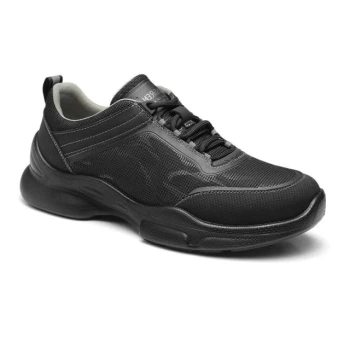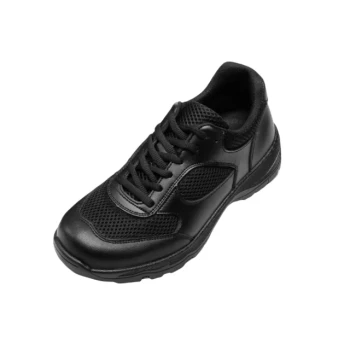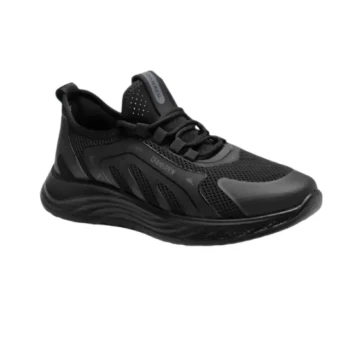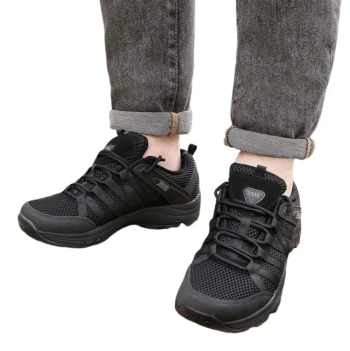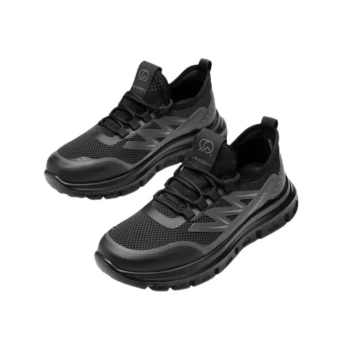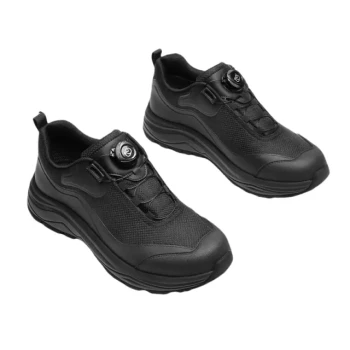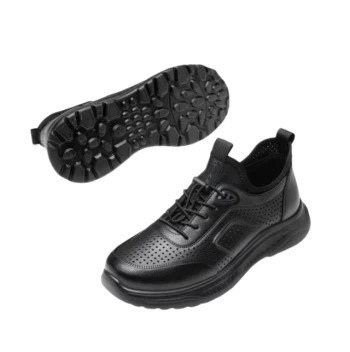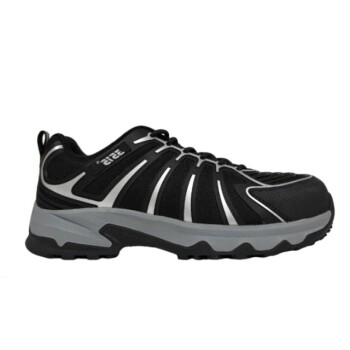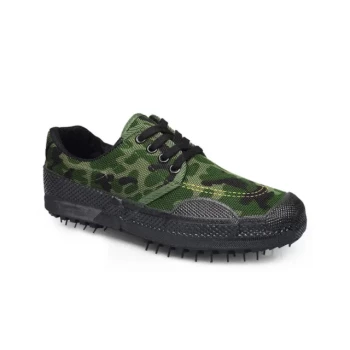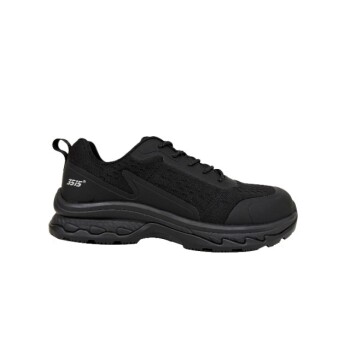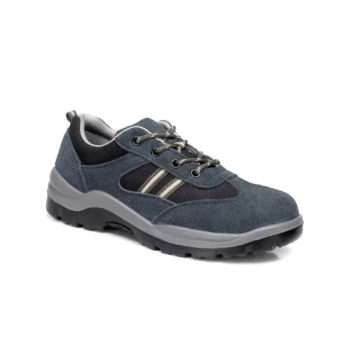At its core, a Flyknit shoe is one where the upper part—the section that covers the foot—is constructed from a single, seamless piece of engineered fabric. This fabric is made from strong, lightweight yarns that are precisely woven together, creating a material that functions like a sock: flexible, breathable, and snug.
The true innovation of Flyknit isn't just about using a new material; it's about fundamentally changing how a shoe is made. Instead of cutting and stitching multiple pieces of material together, Flyknit technology digitally weaves a complete upper in one piece, drastically reducing waste and creating a more precise, second-skin fit.
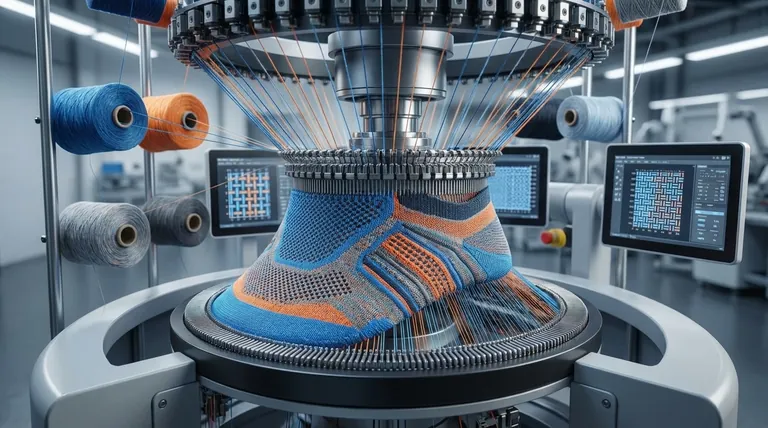
The Problem Flyknit Was Designed to Solve
Before Flyknit, traditional athletic shoe uppers were made using a "cut and sew" method. This involved cutting shapes from large sheets of material and then stitching them together.
The Inefficiency of Traditional Manufacturing
This conventional process created significant material waste—the scraps left over after the patterns were cut were often discarded.
It also introduced potential points of failure, irritation, and unnecessary weight from seams, overlays, and glues.
The Athlete's Need: A Second Skin
Nike designers sought to create an upper that mimicked the feel of a sock. It needed to be dynamic, moving with the foot, while still providing the necessary support and structure for high-performance athletics.
The goal was to eliminate the negatives of traditional construction and deliver a "second-skin" fit that felt virtually unnoticeable to the athlete.
How Flyknit Technology Works
Flyknit is more than just a type of fabric; it's an entire manufacturing process that allows for an unprecedented level of precision.
Digital Weaving and Engineered Yarn
The process starts with strands of strong, lightweight yarn, often made from recycled polyester.
These yarns are fed into a proprietary knitting machine that weaves the entire one-piece upper based on a digital design. This is why it's often called engineered knitting.
Zoned Performance
Because the upper is digitally programmed, designers can precisely control the characteristics of the fabric in different zones.
They can weave a tighter, denser pattern in areas that require more support, like the heel or sides of the foot.
Simultaneously, they can create a more open, breathable weave in areas that need flexibility and ventilation, such as the toebox. This eliminates the need to add extra supportive overlays, reducing weight.
Key Benefits of a Flyknit Upper
The result of this unique construction method is a set of distinct performance advantages.
Featherlight Weight
By eliminating multiple material layers, seams, and glue, Flyknit uppers are exceptionally lightweight. This reduces the energy an athlete expends with every step.
A Precise, Contouring Fit
The sock-like nature of the fabric allows it to conform to the unique shape of your foot. This creates a secure, locked-in feel without being restrictive, reducing internal slipping.
Enhanced Breathability
The ability to create open-knit patterns allows heat and moisture to escape easily, keeping the foot cooler and drier during activity.
Drastic Waste Reduction
Nike has reported that the Flyknit process reduces waste by an average of 60% compared to traditional cut-and-sew methods. This single-piece construction is a significant step towards more sustainable manufacturing.
Making the Right Choice for Your Goal
Flyknit is an excellent technology, but its specific benefits are best suited for certain activities and preferences.
- If your primary focus is running or training: The lightweight, breathable, and secure fit makes Flyknit ideal for activities where minimizing distractions and weight is crucial.
- If your primary focus is casual, everyday comfort: The sock-like feel and flexibility provide exceptional all-day comfort for walking and daily wear.
- If your primary focus is maximum durability for rugged use: While strong, the knit material may be less abrasion-resistant than traditional leather or heavy synthetic uppers used in trail or court sports.
Ultimately, choosing a Flyknit shoe is about prioritizing a seamless, lightweight, and precise fit that moves as an extension of your foot.
Summary Table:
| Feature | Benefit |
|---|---|
| Seamless Construction | Eliminates irritation, reduces weight, and provides a second-skin fit. |
| Zoned Performance | Targeted support and breathability where you need it most. |
| Lightweight Material | Reduces energy expenditure for runners and athletes. |
| Sustainable Manufacturing | Drastically cuts material waste compared to traditional methods. |
Ready to Develop Your Own High-Performance Footwear?
As a large-scale manufacturer, 3515 produces a comprehensive range of footwear for distributors, brand owners, and bulk clients. Our production capabilities encompass all types of shoes and boots, including advanced knitting techniques for seamless uppers.
We can help you bring innovative, high-quality, and sustainable footwear to your market.
Contact our expert team today to discuss your manufacturing needs!
Visual Guide
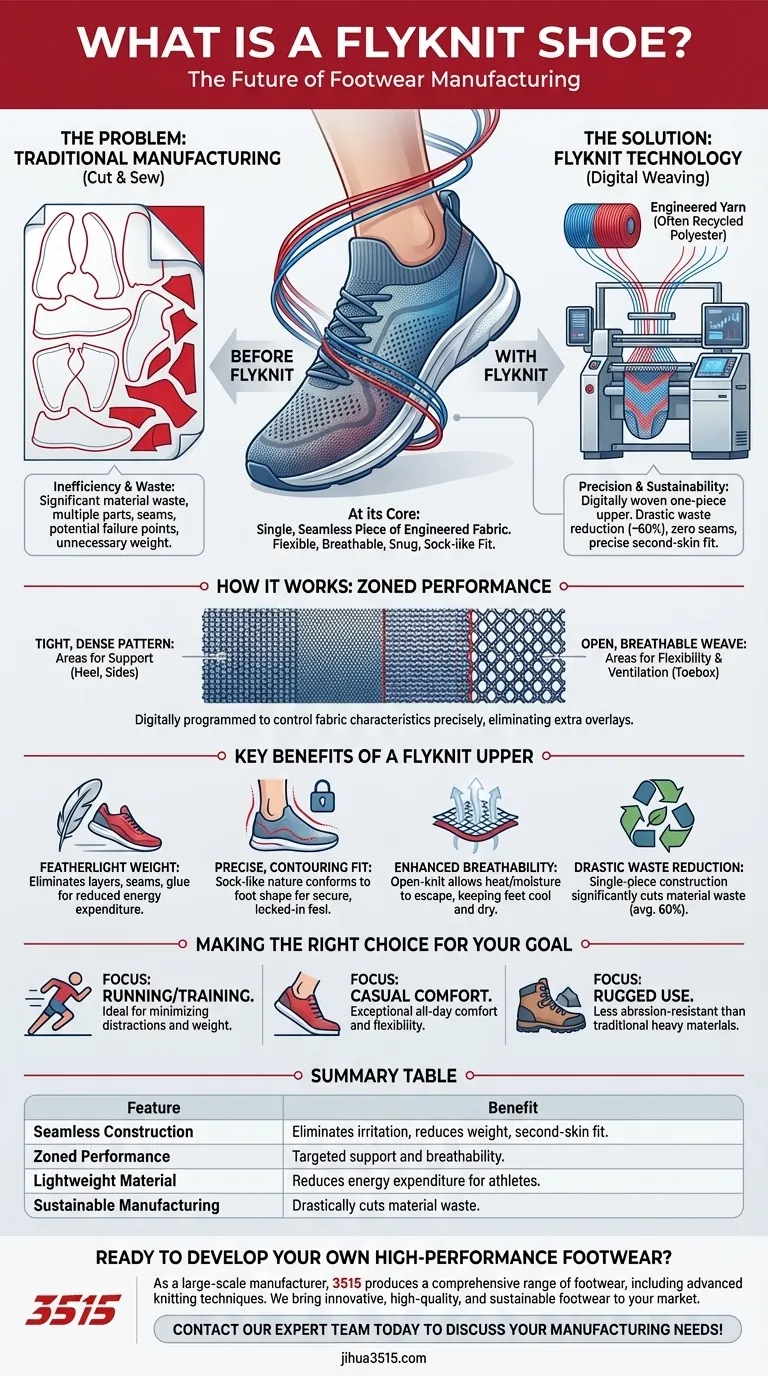
Related Products
- Wholesale Breathable Training Shoes Custom Athletic Footwear Manufacturer
- Wholesale Durable & Breathable Training Shoes for Custom Brands
- Wholesale Breathable & Cushioned Training Shoes Custom Factory Production
- Lightweight Breathable Training Shoes for Wholesale & Custom OEM Manufacturing
- Wholesale Lightweight Cushioned Athletic Sneakers for Custom Bulk Production
People Also Ask
- What should be considered when choosing smart trainers for business casual? A Guide to Professional Style
- What are the benefits of breathable mesh in shoe design? Enhance Comfort and Performance
- What are the characteristics of canvas as a shoe material? A Guide to Lightweight, Breathable Footwear
- Why are running shoes and walking shoes not interchangeable? Avoid Injury with the Right Footwear
- What materials are best for athletic activities in warm climates? Stay Cool with Moisture-Wicking Fabrics
